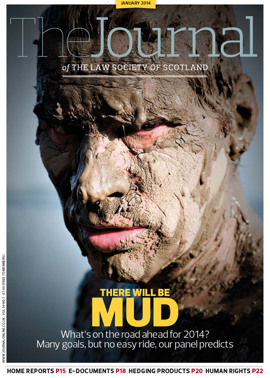One person's entertainment
At the recent Scottish Licensing Law & Practice conference, the new Licensing Bill (expected sometime in 2014) was described, with tongue firmly in cheek, as the “Booze, Sex and Guns Bill”. That the law in this area applies to a colourful part of our society is surely a moot point. The colour can go hand in hand with controversy.
The licensing of Edinburgh saunas is perhaps a recent example. The change of approach to saunas in Edinburgh is attributed by some politicians to the “Strathclyde” police mindset being applied to the old Lothian & Borders constabulary, who had for some time been content not to investigate the alleged sexual activities on these premises. It has generated much opprobrium on all sides. Some claim that the premises should be allowed, as they provide a safe environment for those who work there. Others believe they should simply be closed down.
It comes as a surprise to some that these venues operate under licensing laws, by virtue of a form of the public entertainment licence provisions under the Civic Government (Scotland) Act 1982. The Act creates an optional scheme for licensing forms of public entertainment. It is up to individual local authorities to decide whether public entertainment should be licensed and, if so, what constitutes “public entertainment”. The types of event which are caught by the licensing requirement vary all over Scotland, through large-scale open-air concerts, ice rinks, go-karting, “laser quest” style premises and, in Edinburgh, sauna or massage parlours.
Police approach
The only factor that has changed in the tolerance of these venues is the change of approach by the new single police force. Police Scotland has been castigated in the national press and by sexual health charities for asking Edinburgh Council to ban condoms from these premises as part of the licence renewal process. This was perhaps unfair, although what they did ask for was a ban on items of a “sexual nature”, leaving the committee to decide what these might be.
The police conducted a series of visits to these premises across Scotland, gathering various evidence that they clearly felt suggested an element of criminality. As a result of those visits, the police were able to convince the council to suspend licences for around half of the premises due to alleged evidence of offences under the Proceeds of Crime Act 2002.
The remaining saunas, whose licences had not been “called in” by the police, had their licence renewals objected to on other grounds. Some objections involved direct accusations of sexual activity occurring on a commercial basis. In other cases, the grounds were less sensational, such as a fire door being bolted. At a hearing on 23 October 2013, the majority of sauna licences not previously suspended were renewed – although some were refused.
Some observers take the view that the police had adopted a “policy stance” to all of these premises, this stance being betrayed in that they objected to every licence, even those where there was little or no presentable evidence of criminality or licensing wrongdoing. In those cases, the councillors quite rightly reminded the police at hearing that they are obliged to base their decisions on evidence and not on speculation. Some of the conditions proposed by the police were clearly unenforceable, such as insisting on proper massage tables without explaining what they might be, or asking for staff to have proper qualifications without explaining what qualifications would be suitable.
Over to the council
Subsequent to these hearings, Edinburgh City Council decided to consult on whether to continue to license these premises at all. The consultation happened during November 2013. If the results show that there is no longer any appetite to treat saunas and massage parlours as places of “public entertainment”, then the council must pass a special resolution to amend the list of forms of entertainment for which a licence is needed.
If the capital does remove this form of licence, that does not mean that the premises must cease trading. It simply means that they no longer need a licence to do so. At that point, any concerns the police have about the premises would have to be pursued through the criminal courts.
In this issue
- The DCFR, anyone?
- Cloak and dagger in cyberspace?
- One person's entertainment
- Scouting for professionals?
- Reading for pleasure
- Opinion column: Alan McIntosh
- Book reviews
- Profile
- President's column
- Working smarter, working harder
- Hang tough
- At home with home reports?
- E-missives: what now?
- Hedges: a financial plague
- Rights: a bold agenda
- Timetable twist
- Overprovision: what next?
- Sustainability is the key
- LLP rules unveiled
- Relocation: locking the stable door
- Scottish Solicitors' Discipline Tribunal
- Island futures
- An onerous obligation?
- What's in a name?
- How not to win business: a guide for professionals
- Merging: a safe partner?
- Ask Ash
- From the Brussels office
- Law reform roundup






